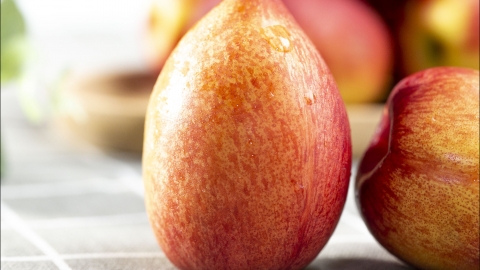Can peaches reduce inflammation?
In general, nectarines have a certain auxiliary anti-inflammatory effect, although the effect is relatively mild. Detailed analysis is as follows:

Nectarines are rich in vitamin C and vitamin E, both of which are antioxidants that can inhibit free radicals associated with inflammatory responses in the body and reduce the production of inflammatory factors, thereby helping to alleviate the body's inflammatory state to some extent. At the same time, nectarines also contain various phenolic substances and other plant compounds, which also exhibit certain antioxidant and anti-inflammatory activities. These components can work synergistically with vitamins to assist in relieving mild inflammatory responses.
However, the anti-inflammatory effects of nectarines cannot replace medical treatment. For significant inflammatory diseases, such as arthritis or severe infectious inflammation, simply consuming nectarines will not achieve effective treatment, and professional medical intervention with medications is still required. Additionally, it is important to consume nectarines in moderation. Excessive consumption may increase the burden on the gastrointestinal system, especially for individuals with weaker digestive function, who should control their intake to avoid gastrointestinal discomfort.






